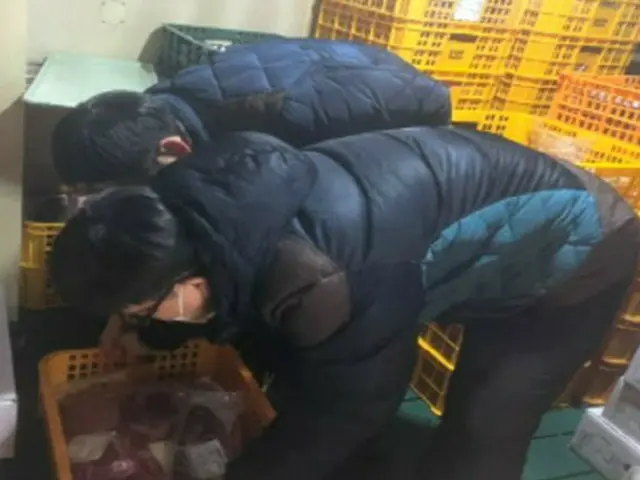South Korea's Incheon City Special Judicial Police has been conducting a
As a result of special crackdowns on violations of the country of origin labeling of agricultural, livestock, and fishery products sold at wholesale markets, large supermarkets, and fish markets until February 7, it was announced that nine violators had been arrested.
This crackdown will target agricultural, livestock, and marine product manufacturers, distributors, and sellers, including large wholesale markets, large supermarkets, and fish markets, where there is a high demand for agricultural, livestock, and marine products offerings and gifts during the Lunar New Year.
It was done. The act of selling imported products by falsely labeling them as domestic products, the act of disguising imported products as domestic products without indicating their country of origin, and the acts of selling imported products as famous specialty products of a specific region (city/county) will be dealt with intensively.
It got tighter. As a result of the crackdown, two retailers falsely indicated the origin of Japanese scallops and other seafood products as being from China or North Korea, two companies did not display the country of origin, and one company engaged in unauthorized business operations in the meat packaging and processing industry.
A total of nine companies were arrested, including one company that engaged in undeclared business activities in the instant meat sales and processing business, and three companies that violated business regulations such as storing livestock products past their expiration dates.
Sashimi shop A labeled Japanese scallops as being from North Korea or China. Sashimi shop B uses Japanese scallops made in Japan.
・The country of origin was falsified by displaying products made in China side by side. Seafood store C sold the products without indicating the country of origin. According to the Act on Labeling the Country of Origin of Agricultural and Fishery Products, it is prohibited to falsify or confuse the label of the country of origin.
If a person makes a display that poses a threat, they will be sentenced to up to seven years in prison or a fine of up to 100 million won (approximately 11 million yen). If you do not display the country of origin, you will be subject to a penalty of up to 10 million won (approximately 1.1 million yen).
is imposed. Jeon Tae-jin, chief of the Incheon City Special Judicial Police, said, ``It seems that citizens misrepresent or confuse the country of origin to avoid Japanese products, such as the release of treated water from Japan's Fukushima nuclear power plant.''
``We will continue to strengthen enforcement so that citizens can trust and purchase safe agricultural, livestock, and marine products.'' Meanwhile, China is importing Japanese marine products in response to the discharge of treated water from the Fukushima nuclear power plant into the ocean.
is completely prohibited. As of 2022, China, which accounted for more than half of Japan's scallop export value, has banned seafood imports, so Japan has chosen South Korea and the European Union (EU) as new sales channels.
I'm focusing on it.
2024/02/07 21:34 KST
Copyrights(C) Edaily wowkorea.jp 78

